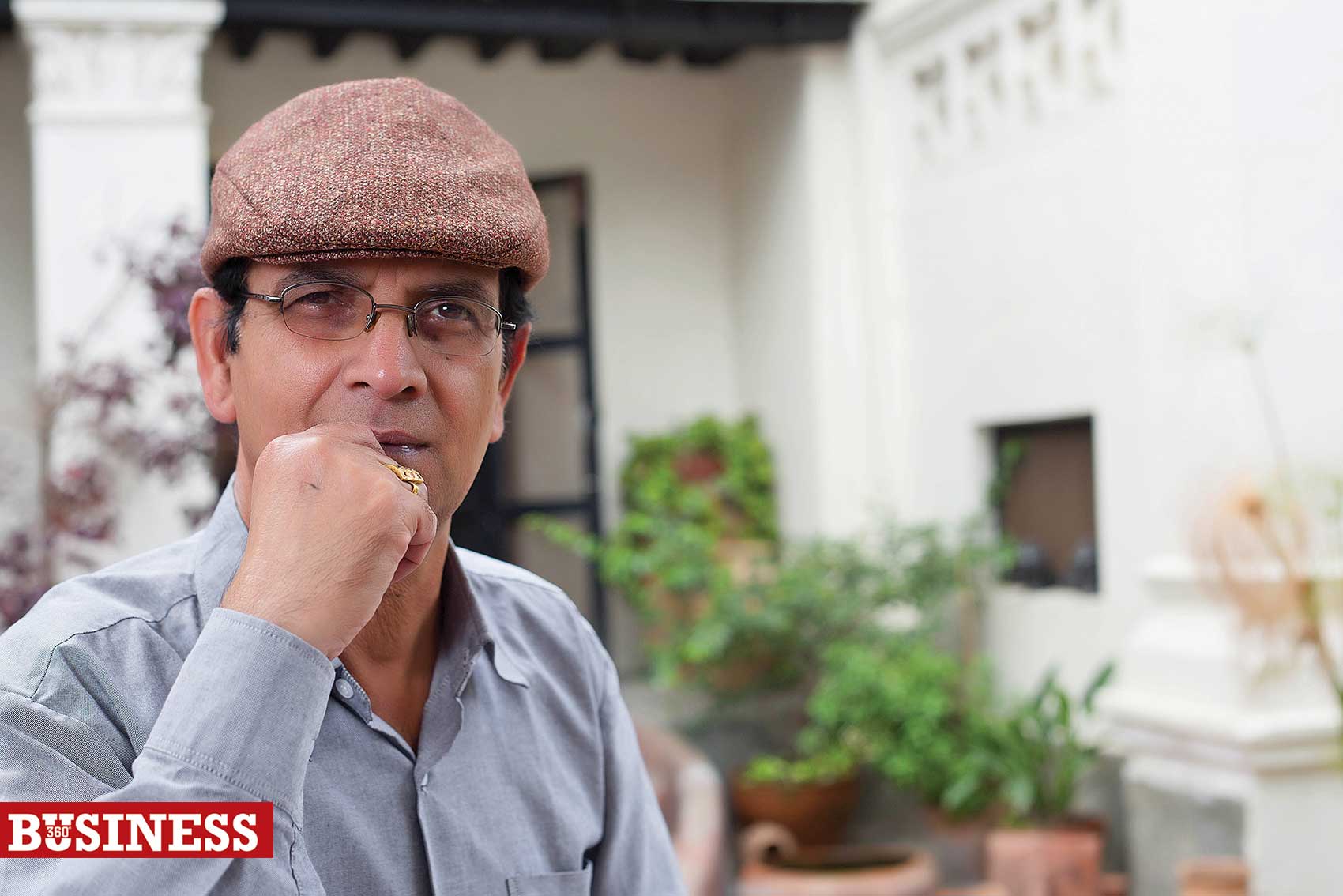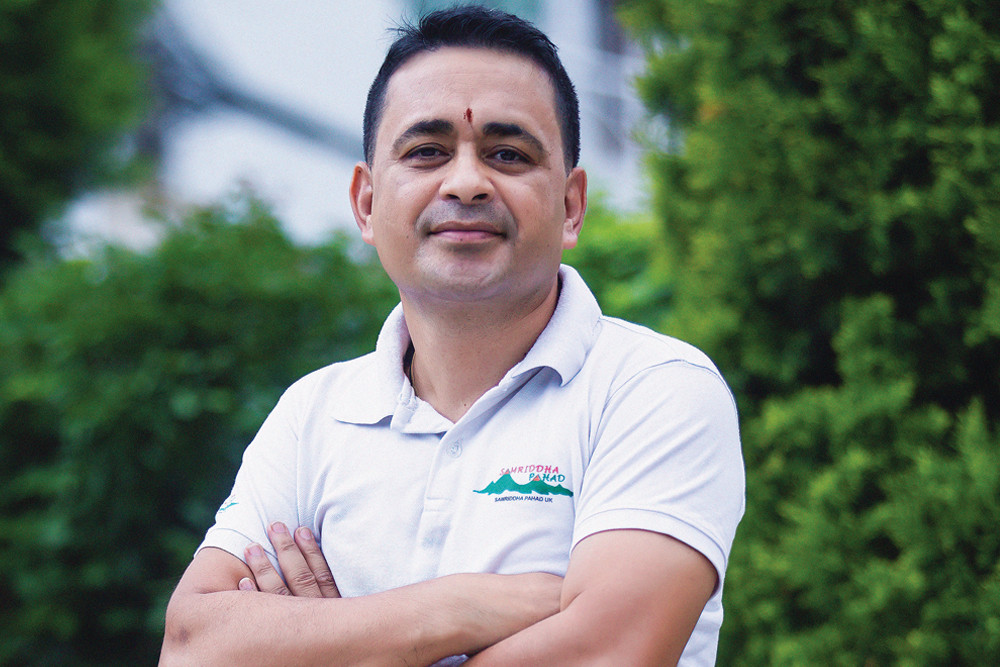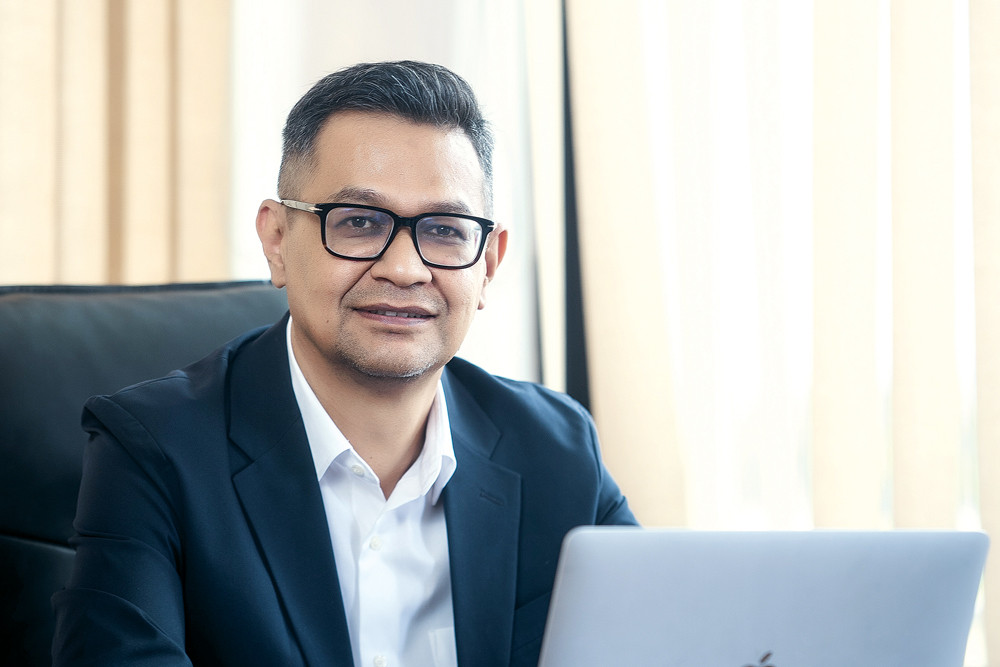
Shreekrishna Aniruddh Gautam is a political analyst, writer and federalism expert who, through the power of his pen, have been raising critical issues on federalization of state and its polity, democracy and Nepal‘s viewpoint in the national and international arena. A firm believer in the Bhagavad Geeta, Gautam is known to work persistently towards a goal unless it is met. In a brief rendezvous with Business 360 º, Gautam discusses his thoughts on leadership and its significance. Excerpts:

"Life is a continuous process where both right and wrong happen. Mistakes are made. If the same mistakes are repeated, one cannot move forward. I am conscious that the same mistake should not happen againâ€.
What are the qualities of a leader especially in context of Nepal?
A leader should be ahead of the time, so that time can be directed to the direction he or she is moving towards. In this context, time means nation and nation means people. The whole genesis is that the leader should be ahead of time. To be ahead of time, s/he should be much updated than the time they find themselves in. When someone is behind time, people will certainly not be satisfied. Our leaders are not adapted to this century, not prepared to lead this century and hence have fallen behind time. However, one cannot be praised or blamed alone. Maybe you are asking if there is blame game in politics. Obviously yes! Politics everywhere is blamed, but in between there is praise too. Where there is power, it attracts so many things including blame.How do you take decisions?
Making decision and taking decision are different in a sense that making is a process while taking is the end. Taking decision is the peak while making a decision is a trek upward. While making a decision, you have a topic or some insight in your mind that ignites you. With that, you go for consultation. Ideas come spontaneously in relation to the issue if you understand the undercurrent of the problem you are handling. In a democracy, when we make decisions, the decision-making goes through prior consultation and I am not an exception. If there is something in mind, I take it to the stakeholders. I put the idea forward as a proposal and leave it on the table. If it is endorsed then it is a decision, otherwise, it was a proposal. I always keep in mind that people love to follow the one who offers solutions rather than one who narrates problems. I offer solutions to the problem rather than narrating. This way, there are less chances for the proposal to not get approved and the decision not taken.What have you learnt from your mistakes?
From my mistakes, I have learnt to be myself. Life is a continuous process where both right and wrong happen. Mistakes are made. If the same mistakes are repeated, one cannot move forward. I am conscious that the same mistake should not happen again. Occasionally, time runs out and mistakes cannot be undone. I admit. In such case I do not keep repenting but move forward.When not working, how do you like to spend your time?
I do lots of reading and introspection during leisure time or during work breaks. I especially love to repeat the reading of Bhagavad Gita.
What would you consider your most significant accomplishment?
I am not stuck to one field. Though I am known as a columnist, political analyst… yet these are not my limit. I love politics. My accomplishment is not personal, as throughout my life I have worked to raise awareness about democracy. Before, 1990 in the autocratic Panchayat days, freedom was my prime concern. Freedom of the people of Nepal. Democracy would be a means to ensure liberty and freedom. The nation collectively achieved that. Moreover, when the system was worked out, the constitution was made, the functioning could not satisfy the people, and it did not go as expected. Leaders heightened the expectations of the people but they were not able to deliver. Then there was the Maoist insurgency since 1996. Those were the days when I defined myself. The system that I loved was there but the people were not satisfied. Sections of people chose to rebel. The way the country was governed was wrong somewhere. As a person who loves his nation, I introspected on where we went wrong. I believe in democracy where common people are applauded, where common people are heard. That might have been the reason for this dissatisfaction. The system we adopted need to be upgraded. Kathmandu cannot reach out to every place everywhere. While introspecting I found the state structure we inherited needs to be restructured. Democracy must reach out to regions having their own governments in their proximity. That was simply impossible in a centralised and unitary state. I worked. I did research and studies and kept advocating for a federal structure in the country where the provinces would are ensured self-rule with shared rule institutions at its centre. Now, this has been achieved in principle.What inspires you to write?
I have been a vociferous reader (I still am). To I recall my childhood days, I would name Rabindranath Tagore. His were the big books I was exposed to for the first time. I was 11-12 years old; the big ideas came to mind from him. I have not yet defined myself, as there are so many more things. I am deeply influenced by Gandhi too. Nevertheless, many a times I disagree with Gandhi. I am highly influenced by Bhagvad Gita. I am influenced by Lord Shri Krishna.Your thoughts on the Madhes issue?
It should be sorted out considering settlement of the people at present. Where we are going to make a federal state, where you are working out and making a federal nation is from the present. Demographic picture should be taken into consideration and accordingly you have to address the issue of delimitation of the borders of the provinces. You have to decide according to the demography, according to the population and its settlement pattern inherited from the past. However, Madhesi issue is more than provincial delimitation. The Madhesi population of Nepal has gathered a deep sense of humiliation and rejection over centuries. In the past, they were not treated as equals. But political and social uprising in this decade have changed the perception and political landscape a lot. There is a big paradigm shift. This shift, if not institutionalised, by way of creating democratic institutions, things may go perverted beyond correction. I have made my opinion public in this regard that simply two opposing parties (Government and Madhes-centric parties) cannot bring results; a third party mediation is must.How do you define Nepal- India relationship post blockade?
Culturally, we have inseparable similarities yet Nepal and India are separate political entities. This reality needs to be understood well. t is equally disturbing that the understanding we must have is missing while formulating policies that effects both peoples. There is a big gap. But this is not true at the peoples‘ level, they keep interacting and cooperating despite having diverging governmental priorities; however, the blockade will stay a bad memory in Nepalese mind for some time to come.How do we ensure that Nepal has a broader regime of freedom of expression and its corollaries?
I speak less in this regard. To my experience until now, particularly after 1990 change I have always found a way to express my views adequately, properly and uncensored. I have never been censored. While talking of freedom of expression in a broad sense, one who expresses should express very responsibly. Sometimes, people who write think that they are not somehow commoners; they need to be treated as special people. I am very sorry; I do not own this view. I am not saying that there is no intimidation, but we should also be watchful of ourselves.
Published Date: August 12, 2016, 12:00 am
Post Comment
E-Magazine
RELATED Leadership


.jpg)


.jpg)